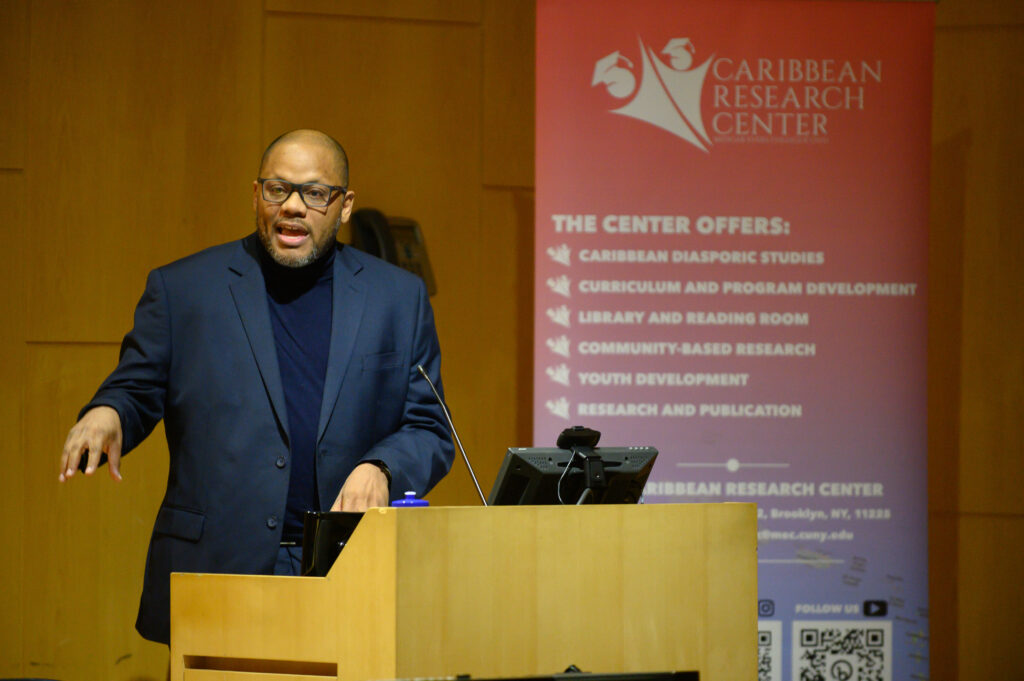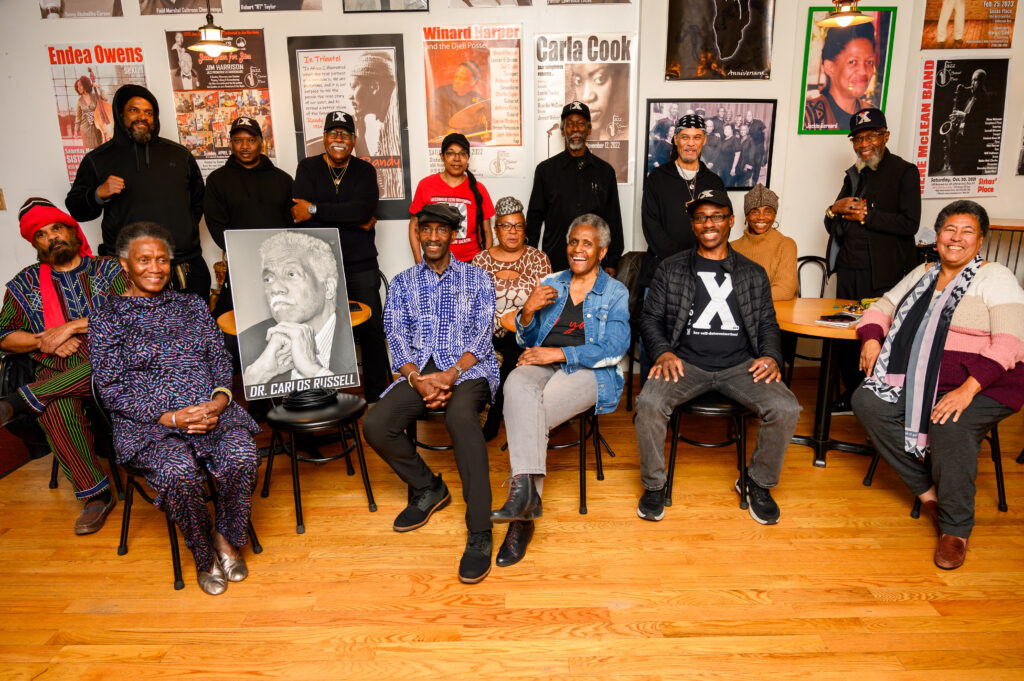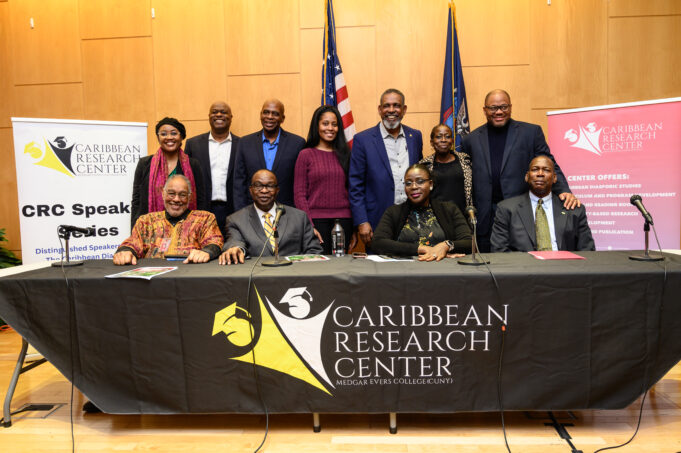by Daleel Jabir Muhammad
BROOKLYN, New York— The December 12th Movement recently held its Black Unity Rally to commemorate the 54th anniversary of Black Solidarity Day in Brooklyn, New York. The theme was “Resistance and Reparations Now!”
In the early days of the Black Power Movement, there were Black leaders, musicians, and elected officials who championed the cause for Black liberation. The “Godfather of Soul,” James Brown inspired Black people to take pride in their heritage with the ever-popular classic 1968 song, “Say it Loud, I’m Black and I’m Proud.”
In the 1960s, Stokley Carmichael, later to become Kwame Ture, called for “Black Power” to inspire young, and older students and grassroots organizations toward a nationalist movement to strengthen Black awareness, culture, economic and political power, and to advance Black communities.
One of the unsung heroes of that era also had a vision to unify Black people in a different way. He wanted Black people to organize on a day of absence, a day of activism, a day to stand together to show the power Black people had to influence elections, close businesses, build an economic platform, and to unite for a common cause.
Dr. Carlos Russell, founder of Black Solidarity Day, was that visionary whose idea was inspired by a fictional play by Douglas Turner Ward called “A Day of Absence” where the playwright envisioned what it would look like in a small town in the South without Black people for one day. Dr. Russell was a Panamanian-born, activist, educator, Ambassador to the United Nations, and political scientist.

Photos: Daleel Jabir Muhammad
He had a strong love for Black people throughout the Diaspora in Africa, Latin America, the Caribbean, and in the continental U.S.A. In 1969 Dr. Russel was known to have said about the first observance of Black Solidarity Day: “Make November 3rd a Black Monday, a demonstration of Black solidarity, a general protest against the intensifying repression that threatens the very existence of Black people in America.”
This movement for change was a pivotal moment in the Black Consciousness movement in New York, Detroit, Chicago, Philadelphia, and other major cities in the country that heeded the call of Dr. Russell.
His movement to empower Black people and to align with other Black leaders led to a great mobilization and rally in New York City on November 2, 1970, in midtown Manhattan on West 34th Street. On that day, as far as any eyes could see, streams of Black people filled the streets in every direction donning the colors of red, black, and green.
Black leaders such as Queen Mother Moore; Viola Plummer; Elombe Brath a.k.a., “The Dean of Black Nationalism”; Sonny Abubadika Carson; Father Lawrence Lucas, other members of the Black Solidarity Day Committee, along with the keynote speaker the Honorable Minister Louis Farrakhan, the National Representative of the Most Honorable Elijah Muhammad of the Nation of Islam, galvanized the masses to take pride in being Black and to unite as brothers and sisters.
This year on November 6, the commemorative Black Unity Rally was held as activists and supporters gathered to reflect.
Viola Plummer, the chairperson of the December 12th Movement, remembered the aim of Dr. Russell’s vision. “Dr. Carlos Russell was a Socialist, so his idea was to gather people to deal with the economic issues as opposed to living the way in which we were living back then,” said Ms. Plummer. She reflected on the first Black Solidarity Day, calling it “unbelievable.”
“On that day it was absolutely breathtaking to see how many Black people who turned out. As far as the eyes could see, it was nothing but Black folks,” she happily recalled. Some of the prominent Black elected officials, including Basil Paterson, Adam Clayton Powell Jr., Charles Rangel, were present that historic day, shared Ms. Plummer.

“Adam Clayton Powell Jr. used to always say hold your money and there is no need to beg. He was one of the most respected politicians back then. And now today, we must remember our base of support amongst the people, in the spirit of Dr. Carlos Russell and Black Solidarity Day. We demand that the governor of New York, Kathy Hochul, sign the reparations bill before December 31 this year,” Ms. Plummer stated.
The book, “Seven Speeches,” a compilation of messages by Minister Farrakhan contains his 1970 Black Solidarity address which inspired hope and gave guidance from the Eternal Leader of the Nation of Islam, the Most Honorable Elijah Muhammad. “As we ratify that Declaration of Independence, we must move now to establish that base upon which we can truly be independent,” the Minister said that day.
The message of doing for self, having a knowledge of self, and building an independent nation within a nation were key points of the Minister’s message from his teacher. “He asked me to tell you that the base of solidarity is Black and the base of Black solidarity is the love of the Black man for his Black brother. You have got to love your Black self. Look out for your Black brother and your Black sister as you love yourself,” Minister Farrakhan stated.
This year’s commemoration was held at Medgar Evers College, a predominately-Black institution (PBI) in Brooklyn. The Caribbean Research Center presented a Black Solidarity panel discussion on “Bridging the Breaches among Diverse Black Communities” in which panelists shared perspectives from the African Diaspora. Khari Russell, the son of Dr. Carlos Russell, expounded on his father’s reasoning for establishing the day. He explained that his father worked with Dr. Martin Luther King Jr.’s Poor Peoples Campaign and on Dr. King’s other endeavors.
“He decided that the non-violence method to reclaim our humanity that was taken from us, was good but not good enough. The only way to move forward and to make progress was to demonstrate what our power represented on a day of absence,” said Khari Russell.
“We on a yearly basis, currently, we represent $1.5 trillion dollars of buying and selling power. That’s nearly $3.8 million dollars a day. That’s a lot of solidarity if we work together, organize, and mobilize around key issues. That is what my father envisioned to be a culmination of a year-long strategic policy to reclaim our humanity and strength that we have as a people.”
Other panelists addressed issues of importance about dispelling stereotypes amongst various African/Black cultural divides, collective struggles and the importance of recognizing commonalities in dress, foods, and the myriad of sacrifices made in our sojourn from Africa to the Caribbean, Latin America, and to the United States to bridge these gaps.
Dr. John Flateau, a panelist, and a professor at Medgar Evers College, pointed out that the ideology of his friend and colleague Dr. Russell was as a human rights activist, civil rights activist, and political strategist but above all, a revolutionary Pan-Africanist.













